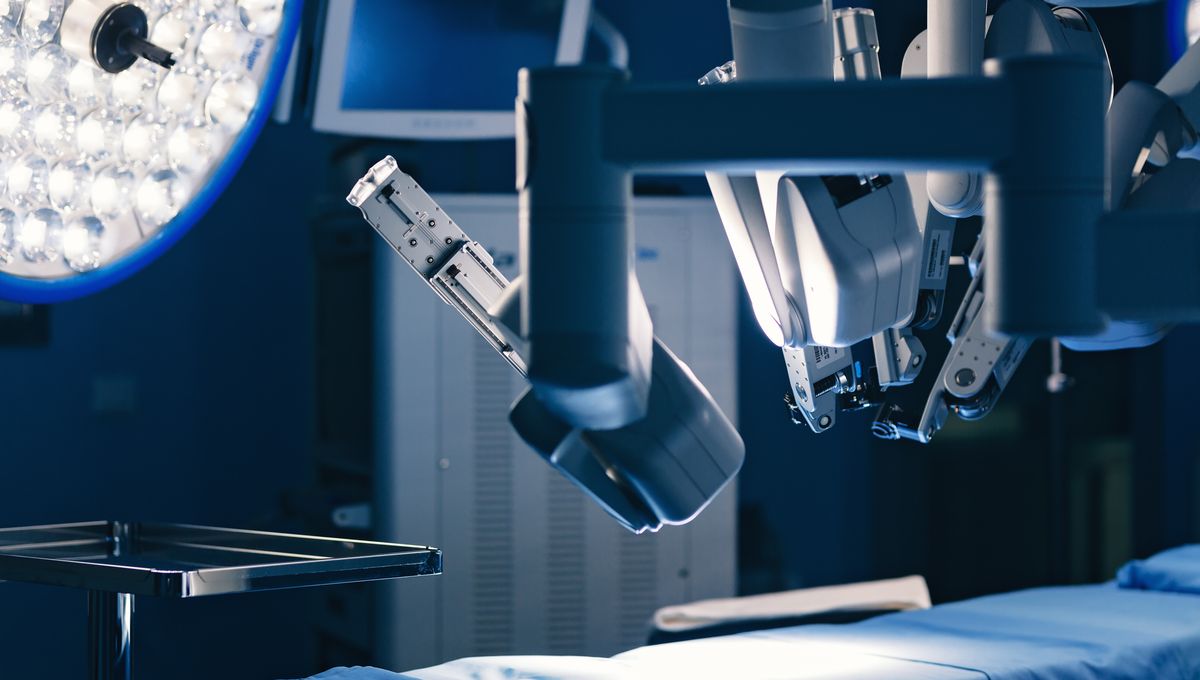
Earthly doctors have boldly gone where no medics have gone before, as they used a remote-operated robot to perform simulated surgery aboard the International Space Station (ISS). If you’re concerned about which astronaut had to play the guinea pig, though, don’t worry – the surgical procedure was limited to a bunch of rubber bands for now.
The all-important robot, which is only about the size of a microwave oven, was transported to the ISS on a SpaceX Falcon 9 rocket at the end of January 2024, and installed by NASA astronaut Loral O’Hara on February 8, according to AFP. Called spaceMIRA, it was developed by Nebraska-based Virtual Incision as the “world’s first miniaturized robotic-assisted surgery” system.
Just a couple of days later, surgeons at Virtual Incision’s headquarters – which sits about 400 kilometers (250 miles) below the ISS’s position in orbit – took control of spaceMIRA and performed simulated surgery on the elastic mock tissue.
Six surgeons took turns, using one of the robot’s hands to apply tension to the tissue while using the other to dissect it with scissors. It’s a technique that’s used in lots of surgeries, and it went without a hitch.
The compact design and dexterity that spaceMIRA can offer are key to its potential. “It gives smaller hands and eyes to the surgeon (on Earth) and allows them to perform a lot of procedures minimally invasively,” Virtual Incision’s cofounder and CTO Shane Farritor told CNN.
It does have some limitations, a major one being the time delay between the center of operations on Earth and the robot on the ISS – around 0.85 seconds. That might not sound like a lot, but as colorectal surgeon Dr Michael Jobst, who was involved in the demo, told CNN, “Five seconds would be an eternity in surgery, and a split second or a half a second is going to be significant. So, this was a big challenge.”
Still, these successful tests represent a big step forward in the quest to improve access to medical care in space – a quest that has already seen a Star Trek-esque holographic doctor ported to the ISS.
Long-haul space travel is coming, and many dream of colonizing strange new worlds or building the next generation of space stations. Given what we know about the many and varied unpleasant medical situations all this might herald – it was even the topic of the first feature film shot in space – it’s a good job that space surgery is seemingly progressing so well.
But the technology behind spaceMIRA could also have lots of useful applications much closer to home, as Farritor explained.
“There are a lot of places in the US … that don’t have access to specialists, and if you could perform telesurgery like this, where you could have an expert dial in from a larger city into a rural area and assist with some surgical care, I think that’s got huge advantages.”
John Murphy, president and CEO of Virtual Incision, echoed this in a statement. “As thrilling as it is to have our technology in space, we expect the impact of this research will be most notable on Earth. The introduction of [miniaturized robotic-assisted surgery] has the potential to revolutionize healthcare by making every operating room robot ready.”
Whether it be in the remotest regions of our planet or way up in orbit, when medical issues strike, help can feel more distant than ever. Thanks to technology like this, surgeons could have the chance to perform life-saving procedures from hundreds of miles – and maybe one day, a whole world – away.
Source Link: Space Surgery Milestone Reached As Doctors On Earth First To Operate Robot On ISS